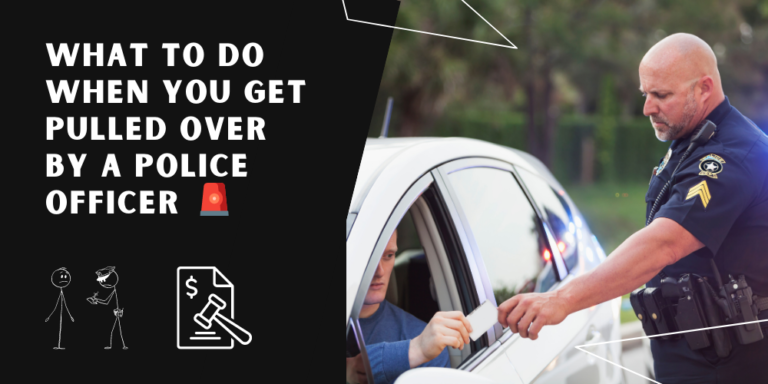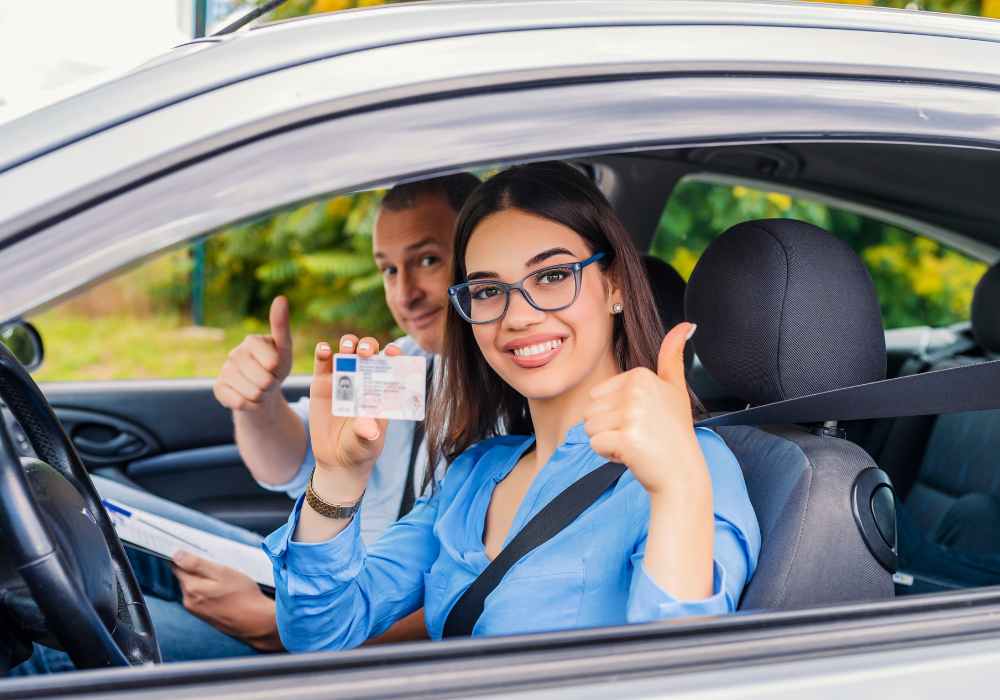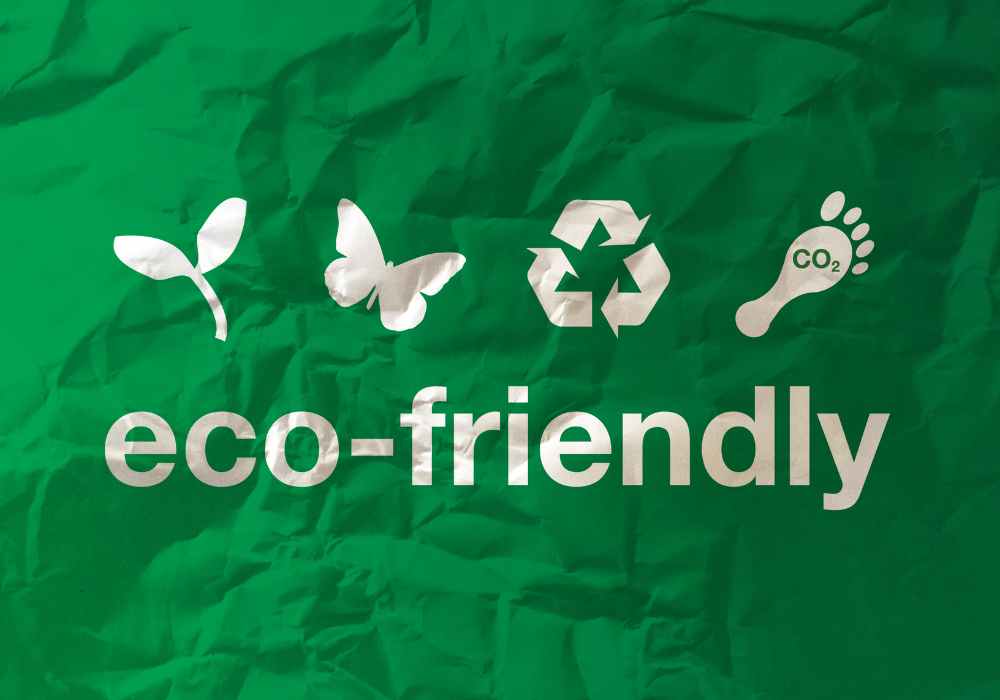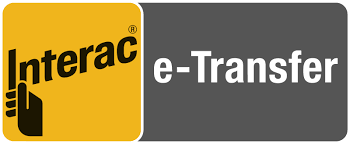Getting pulled over by a police officer can lead to several feeling such as humiliation, confusion, frightening or even frustration. These pull overs may only be for a pointless investigation or for serious reasons. A very common pull over would be due to violating the traffic rule or the road signs. Having to experience this as a new learner can be stressful, therefore here we will discuss some topics that will make it easier for a new driver and keep them aware of the signals. That being said, some signals you might get to see are flashing lights and siren warnings to indicate the right to get pulled over. In Ontario, most people get pulled over due to traffic violation or erratic driving.
During the process of getting pulled over, the officer may legally ask you for your driver’s licence, insurance, identity and vehicle documents. In addition, while you are getting investigated, your attitude will matter and if you violate the laws, you can face tremendous problems.
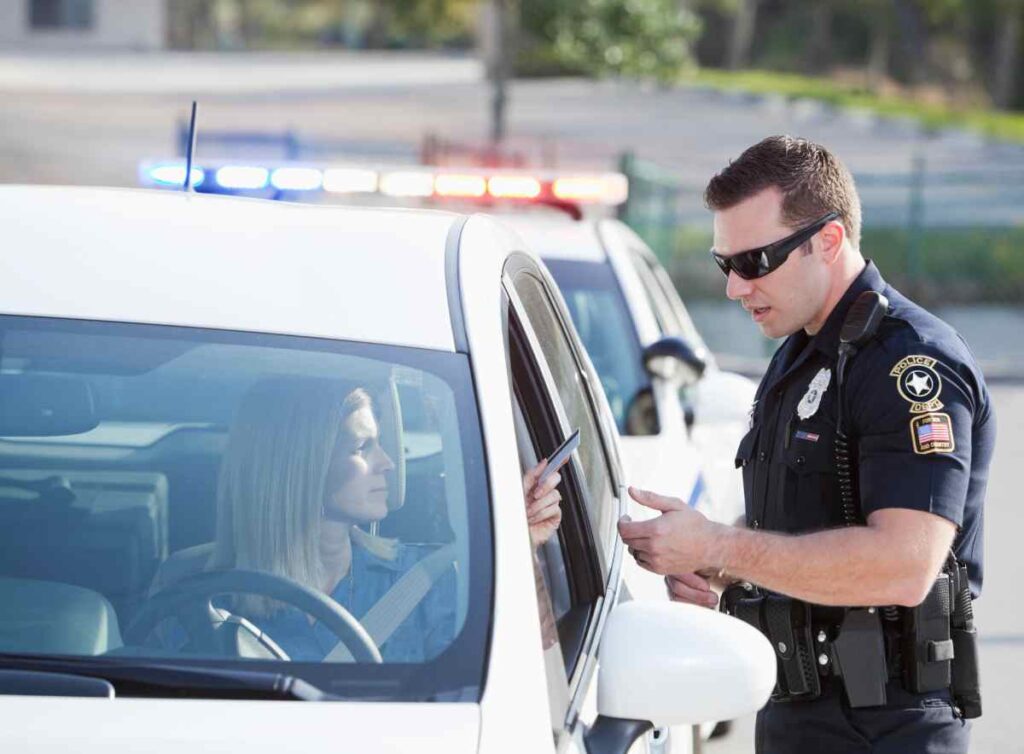
What should you do when you get pulled over?
1. When you get pulled over by a police officer, move to a safe location and turn on your emergency flashers. This will alert other drivers that you are preparing to move on the side of the road and also indicate the officer that you intend to stop. It is preferable to find a wide shoulder of the road in order to avoid traffic.
2. Stay patient: It may take several moments for the police officer to arrive to your car. This may be because the officer is noting down your license plate, acquiring some information about your car or they might be informing the police station that your vehicle has been stopped.
3. Right when the police officer approaches you, immediately put down your windows and keep both hands on the steering wheel. This is important because the officer may think that you are trying to fidget with your hands. For example, you are trying to search for a weapon or that you are hiding something. This will create a suspicious movement.
4. Stay calm and polite even if you feel like the officer is being unfair. Higher chances are that they might lower the fine based on your positive attitude. Don’t be defensive if you don’t know why the officer pulled you over, try to understand the reason.
5. It is important to keep your documents in the car. This includes the license, insurance, identity and vehicle documents. Only hand in the documents once it is demanded, taking it out before will create assumptions of carrying a weapon.
6. Don’t lie about the allegation. If you know you have wronged, be apologetic. At least this won’t make you pay a charge for obstructing justice. If you are asked to go through a physical sobriety test, you must obey them.
7. If you are given a warning, take it as an opportunity to improve your driving. Immediately thank the officer for understanding and giving the chance for you to improve. However, if you get fined, be respectful even if you are unhappy. Remember that even if you don’t agree to the ticket, you may fight the ticket later.
8. Lastly, once the officer has returned to their car, slowly proceed back to the road.
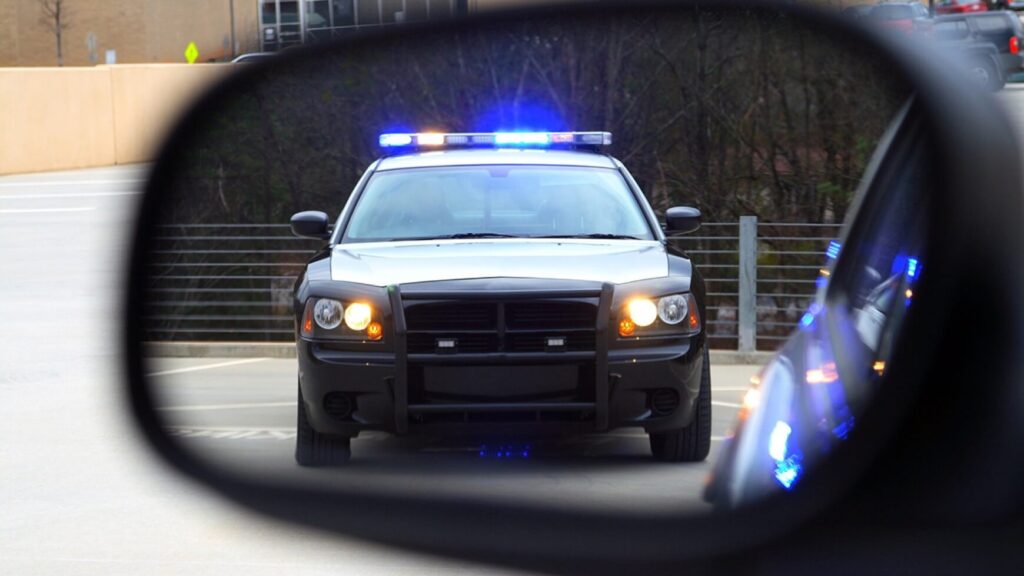
How do people feel when they get pulled over by a police officer?
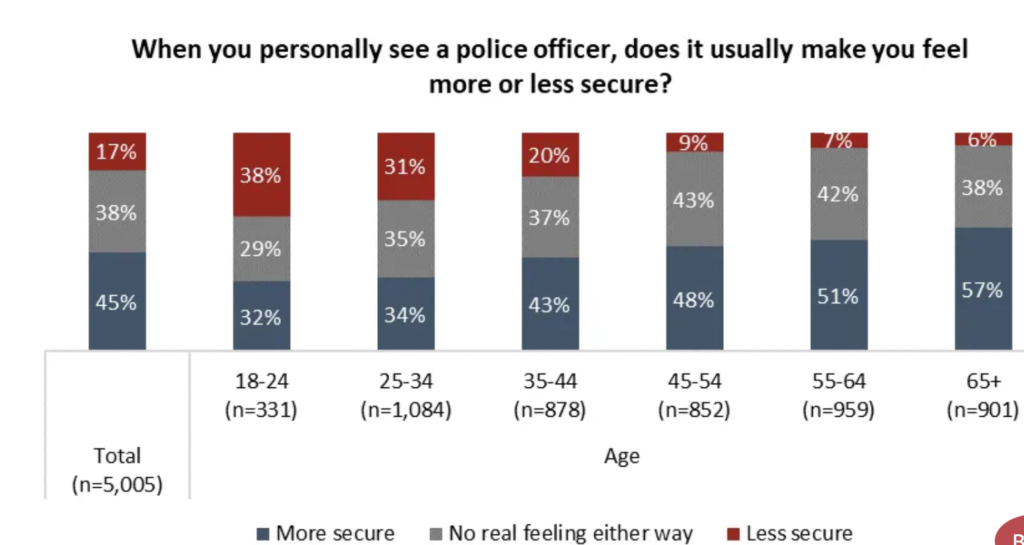
As shown in the table above, young drivers aged 18-24 are most likely to feel less secure when they interact with a police officer. In comparison to the older demographic who are more experienced, are more likely to feel secure when they get encounter by an officer.
According to studies of York University, nearly 200,000 traffic stops occur in from 2015 to 2018. Yet, we can say that the percentage of traffic stops has slowly decreased in comparison to 2010 when there were 700,000 tickets given for violating the laws.
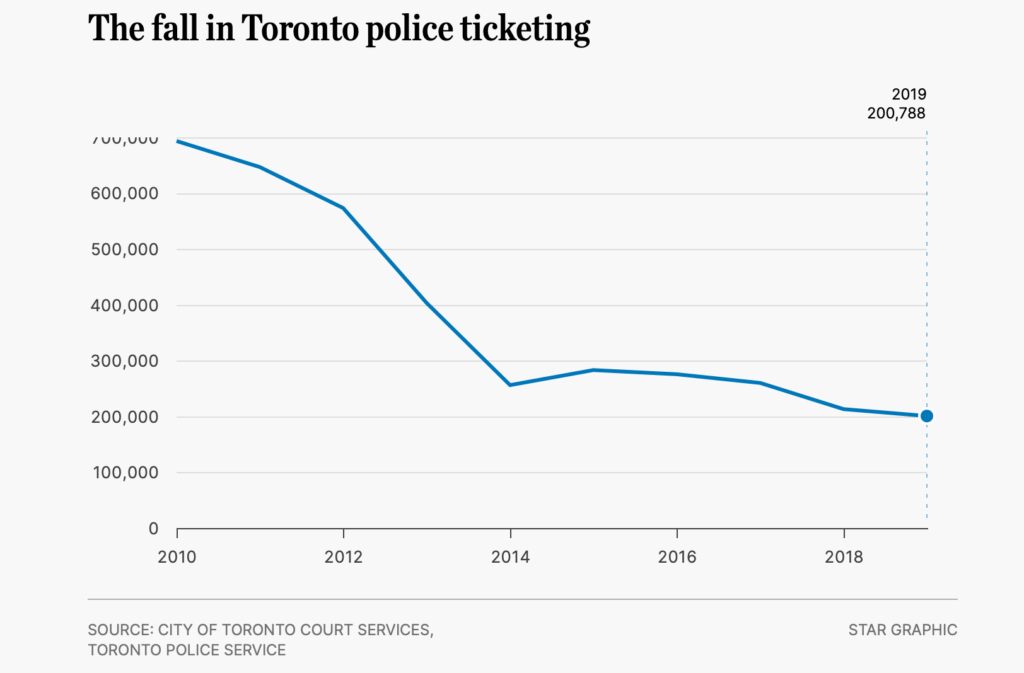
Can a police officer have the right to search tour vehicle?
Generally, a police officer does not have the right to search your vehicle if you disagree; however, they do on a fundamental basis. An officer who spots, smell and hear something suspicious during a pull over can probably search your car. Once you get pulled over, an officer may suspect on you based on your actions and behaviour. For instance, if they acknowledge uncertain movement of hidden guns or drugs in the compartment can allow the police officer to search the vehicle. Furthermore, an officer can search your vehicle if you give them permission, if they have a warrant or if they discover that you are committing an offence.
What other rights do you have once you get pulled over
The Charter of Right and Freedom covers many individual rights in Canada. These rights protect Canadians from unreasonable and discriminating power by the officer. For instance, you have the privilege to remain silent if you wish not to answer any questions. However, dealing the situation with cooperation usually leads to reduced punishments or even a warning.
Secondly, if you believe that you have been wronged with the ticket, you have the right to prove your innocence to the judge. Remember if you don’t agree with the fine, fight for the charges! This will save you from a guilty plea and a criminal record.
Lastly, if you happen to drive drunk, you are required to do roadside breath test or even a physical sobriety test. While doing this test, you do not have the right to talk to a lawyer. However, if you are taken to the police station for a breathalyzer test, you have the right to speak to a lawyer before taking the test at the police station.
While getting pulled over may seem like an unpleasant experience, but it is always better to cooperate and to be polite. Make sure to correct your driving mistake and avoid making inconvenient errors for your own safety.



